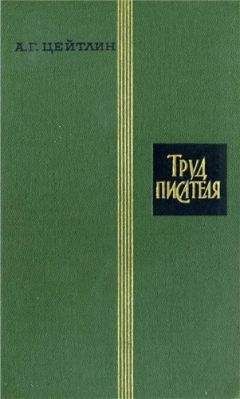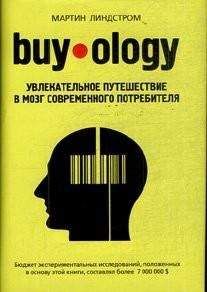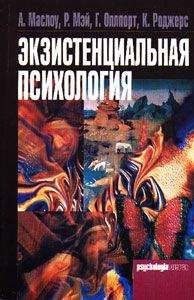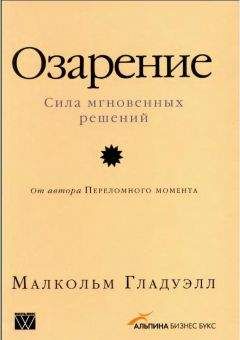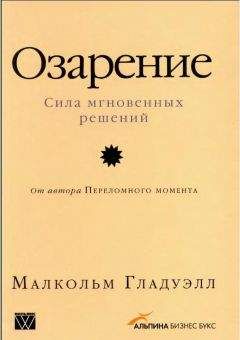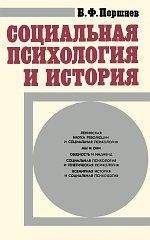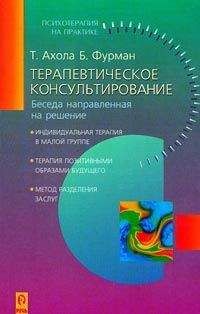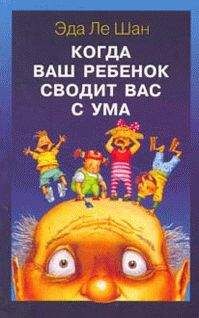Скотт Плаус - Психология оценки и принятия решений

Скачивание начинается... Если скачивание не началось автоматически, пожалуйста нажмите на эту ссылку.
Жалоба
Напишите нам, и мы в срочном порядке примем меры.
Описание книги "Психология оценки и принятия решений"
Описание и краткое содержание "Психология оценки и принятия решений" читать бесплатно онлайн.
Книга посвящена психологии принятия решений - теме, находящейся на стыке когни-тивной и социальной психологии и практически не освещенной в современной литературе. Автор в доступной форме анализирует особенности восприятия, памяти, модели принятия решений, социальную сторону оценки, выбора и принятия решений, типичные ситуации. Книга насыщена примерами из реальной жизни, тестами и уникальными упражнениями. Она поможет читателю понять механизм формирования оценки и принятия решений, а значит, избежать многих ошибок, просчетов и ловушек, подстерегающих его на этом пути.
Dube-Rioux, L., Russo, J. E. (1988). An availability bias in professional judgment. Journal of Behavioral Decision Making, 1,223—237.
Duncan, B. L. (1976). Differential social perception and attribution of inter-group violence: Testing the lower limits of stereotyping blacks. Journal of Personality and Social Psychology, 43,590—598.
Dunning, D., Griffin, D. W., Milojkovic, J. D., Ross, L. (1990). The overconfidence effect in social prediction. Journal of Personality and Social Psychology, 58,568-581.
Dunning, D., Parpal, M. (1989). Mental addition versus subtraction in counterfactual reasoning: On assessing the impact of personal actions and life events. Journal of Personality and Social Psychology, 57,5—15.
Duval, S., Wicklund, S. A. (1973). Effects of objective self-awareness on attribution of causality. Journal of Experimental Social Psychology, 9,17—31.
Ebbesen, E. В., Konecni, V. J. (1975). Decision making and information integration in the courts: The setting of bail. Journal of Personality and Social Psychology, 32,805-821.
Edeal, G. H. (1950, March 27). Why the choir was late. Life,p. 19.
Eddy, D. (1982). Probabilistic reasoning in clinical medicine: Problems and opportunities. In D. Kahneman, P. Slovic, A. Tversky (Eds.), Judgment under uncertainty: Heuristics and biases.Cambridge, England: Cambridge University Press.
Edwards, W. (1968). Conservatism in human information processing. In B. Kleinmuntz (Ed.), Formal representation of human judgment.New York: John Wiley and Sons.
Einhorn, H. J., Hogarth, R. M. (1981). Behavioral decision theory: Processes of judgment and choice. Annual Review of Psychology, 32,53—88.
Einhorn, H. J., Hogarth, R. J. (1986). Backward and forward thinking in decision making. Selected Paper No. 62.Chicago: Graduate School of Business, University of Chicago.
Ellsberg, D. (1961). Risk, ambiguity, and the Savage axioms. Quarterly Journal of Economics, 75,643—669.
Esser, J. K., Lindoerfer, J. S. (1989). Groupthink and the space shuttle Challenger accident: Toward a quantitative case analysis. Journal of Behavioral Decision Making, 2,167—177.
Fama, E. F. (1965). Random walks in stock market prices. Financial Analysts Journal, 21,55-60.
330
Feldman, J. M. (1986). A note on the statistical correction of halo error. Journal of Applied Psychology, 71,173—176.
Feldman, R. S., Prohaska, T. (1979). The student as Pygmalion: Effect of student expectation on the teacher. Journal of Educational Psychology, 71485-493.
Feldman, R. S., Theiss, A. J. (1982). The Teacher and the student as Pygmalions: Joint effects of teacher and student expectations. Journal of Educational Psychology, 74,217—223.
Festinger, L. (1954). A theory of social comparison processes. Human Relations, 7,117-140.
Festinger, L. (1957). A theory of cognitive dissonance.Evanston, IL: Row, Peterson.
Festinger, L., Carlsmith, J. M. (1959). Cognitive consequences of forced compliance. Journal of Abnormal and Social Psychology, 58,203—210.
Feynman, R. P. (1988, February). An outsider's inside view of the Challenger inquiry. Physics Today,26—37.
Fiedler, K. (1988). The dependence of the conjunction fallacy on subtle linguistic factors. Psychological Research, 50,123—129.
Fischhoff, B. (1977). Perceived informativeness of facts. Journal of Experimental Psychology: Human Perception and Performance, 3,349—358.
Fischhoff, B. (1991). Value elicitation: Is there anything in there? American Psychologist, 46,835-847.
Fischhoff, В., Bar-Hillel, M. (1984). Diagnosticity and the base-rate effect. Memory Cognition, 12,402—410.
Fischhoff, В., Beyth, R. (1975). "I Knew it would happen": Remembered probabilities of once-future things. Organizational Behavior and Human Performance, 13,1—16.
Fischhoff, В., Beyth-Marom, R. (1983). Hipothesis evaluation from a Bayesian perspective. Psychological Review, 90,239—260.
Fischhoff, В., Lichtenstein, S., Slovic, P., Derby, S. L., Keeney, R. L. (1981). Acceptable risk.Cambridge, England: Cambridge University Press.
Fischhoff, В., Slovic, P. (1980). A little learning...: Confidence in multi-cue judgment tasks. In R. Nickerson (Ed.), Attention and performance, VIII.Hillsdale, NJ: Erlbaum.
Fischhoff, В., Slovic, P., Lichtenstein, S. (1977). Knowing with certainty: The appropriateness of extreme confidence. Journal of Experimental Psychology: Human Perception and Performance, 3,552—564.
Fishburn, P. С (1984). SSB utility theory and decision making under uncertainty. Mathematical Social Sciences, 8,253—285.
Fiske, S. Т., Taylor, S. E. (1991). Social cognition(2nd ed). New York: McGraw-Hill.
Fletcher, D. J. O., Ward, W. (1988). Attribution theory and processes: A cross-cultural perspective. In M. H. Bond (Ed.), The cross-cultural challenge to social psychology.Newbury Park, CA: Sage Publications.
331
Forsterling, F. (1989). Models of covariation and attribution: How do they relate to the analogy of analysis of variance? Journal of Personality and Social Psychology, 57,615—625.
Frenkel, O. J., Doob, A. N. (1976). Post-decision dissonance at the polling booth. Canadian Journal of Behavioral Science, 8,347—350.
Frieze, I. H., Bar-Tal, D., Carroll, J. S. (Eds.). New approaches to social problems.San Francisco: Jossey-Bass.
Galper, R. E. (1976). Turning observers into actors: Differential causal attributions as a function of "empathy". Journal of Research in Personality, 10,328-335.
Gansberg, M. (1964, March 27). 37 who saw murder didn't call the police. New York Times,pp. 1, 38.
Gill, S. (1947, March 14). How do you stand on sin? Tide,p. 72.
Gilovich, Т., Vallone, R., Tversky, A. (1985). The hot hand in basketball: On the misperception of random sequences. Journal of Personality and Social Psychology, 17,295-314.
Gliksman, A. (1986, February 13). Behind Moscow's fear of "Star Wars". New York Times,p. 27.
Gmelch, G. (1978, August). Baseball magic. Human Nature,pp. 32—39.
Goldberg, L. R. (1959). The effectiveness of clinicians'judgments: The diagnosis of organic brain damage from the Bender-Gestalt test. Journal of Consulting Psychology, 23,25—33.
Golding, S. L., Rorer, L. G. (1972). Illusory correlation and subjective judgment. Journal of Personality and Social Psychology, 80,249—260.
Graham, T. W., Kramer, В. М. (1986). The polls: ABM and Star Wars: Attitudes toward nuclear defense, 1945—1985. Public Opinion Quarterly, 50,125-134.
Greenberg, J., Williams, K. D., O'Brien, M. K. (1986). Considering the harshest verdict first: Biasing effects on mock juror verdicts. Personality and Social Psychology Bulletin, 12,41—50.
Gregory, W. L., Cialdini, R. В., Carpenter, К. В. (1982). Self-relevant scenarios as mediators of likelihood and compliance: Does imagining make it so? Journal of Personality and Social Psychology, 43,89—99.
Grether, D. M., Plott, C. R. (1979). Economic theory of choice and the preference reversal phenomenon. American Economic Review, 69,623—638.
Griffin, D. W., Dunning, D., Ross, L. (1990). The role of construal processes in overconfident predictions about the self and others. Journal of Personality and Social Psychology, 59,1128—1139.
Griggs, R. A., Cox, J. R. (1982). The elusive thematic-materials effect in Wason's selection task. British Journal of Psychology, 73,407—420.
Gross, E. J. (1964). The effect of question sequence on measures of buying interest. Journal of Advertising Research, 4,40—41.
Haberman, C. (1990, July 19). A child's nightmare in Italy is now the nation's shame. New York Times,pp. Al, All.
332
Hagafors, R., Brehmer, B. (1983). Does having to justify one's judgments change the nature of the judgment process? Organizational Behavior and Human Performance, 31,223—232.
Hake, H. W., Hyman, R. (1953). Perception of the statistical structure of a random series of binary symbols. Journal of Experimental Psychology, 45,64-74.
Hamilton, D. L., Rose, T. L. (1980). Illusory correlation and the maintenance of stereotypic beliefs. Journal of Personality and Social Psychology, 39,832-845.
Hardin, G. (1968). The tragedy of the commons. Science, 162,1243—1248. "Harper's Index". (1986, October). Harper's,p. 11.
Harris, R. J. (1973). Answering questions containing marked and unmarked adjectives and adverbs. Journal of Experimental Psychology, 97,399—401.
Hartley, E. (1946). Problems in prejudice.New York: King's Crown Press.
Harvey, J. H., Town, J. P., Yarkin, K. L. (1981). How fundamental is the "fundamental attribution error"? Journal of Personality and Social Psychology, 40,346—349.
Hastie, R. (1986). Review essay: Experimental evidence on group accuracy. In B. Grofman and G. Owen (Eds.), Information pooling and group decision making: Proceedings of the Second University of California, Irvine, Conference on Political Economy.Greenwich, CT: Jai Press.
Hastorf, A. H., Cantril, H. (1954). They saw a game: A case study. Journal of Abnormal and Social Psychology, 49,129—134.
Hawkins, S. A., Hastie, R. (1990). Hindsight: Biased judgments of past events after the outcomes are known. Psychological Bulletin, 107,311—327.
Heider, F. (1958). The psychology of interpersonal relations.New York: Wiley.
Henchy, Т., Glass, D. C. (1968). Evaluation apprehension and the social facilitation of dominant and subordinate responses. Journal of Personality and Social Psychology, 10,446—454.
Henslin, J. M. (1967). Graps and magic. American Journal of Sociology, 73,316-330.
Hershey, J. C, Schoemaker, P. J. H. (1980). Risk taking and problem context in the domain of losses: An expected utility analysis. Journal of Risk and Insurance, 47,111—132.
Hewstone, M. R. C, Jaspars, J. M. F. (1987). Covariation and causal attribution: A logical model for the intuitive analysis of variance. Journal of Personality and Social Psychology, 53,663—672.
Hill, G. W. (1982). Group versus individual performance: Are N + Iheads better than one? Psychological Bulletin, 91,517—539.
Hilton, D. J., Slugoski, B. R. (1986). Knowledge-based causal attribution: The abnormal conditions focus model. Psychological Review, 93,75—88.
Hilts, P. J. (1990, September 26). Major gains are cited for smokers who quit. New York Times,p. B4.
333
Hintzman, D. L. (1969). Apparent frequency as a function of frequency and the sparing of repetitions. Journal of Experimental Psychology, 80,139—145.
Hippler, H., Schwarz, N. (1986). Not forbidding isn't allowing: The cognitive basis of the forbid-allow asymmetry. Public Opinion Quarterly, 50,87-96.
Hoch, S. J. (1984). Availability and interference in predictive judgment. Journal of Experimental Psychology: Learning, Memory, and Cognition, 10,
649-662. Hoch, S. J. (1985). Counterfactual reasoning and accuracy in predicting
personal events. Journal of Experimental Psychology: Learning, Memory,
and Cognition, 11,719-731. Hofstadter, D. R. (1985). Metamagical themas: Questing for the essence of
mind and pattern.New York: Basic Books. Hogarth, R. M. (1975). Cognitive processes and the assessment of subjective
probability distributions. Journal of American Statistical Association, 70,
Hogarth, R. (1987). Judgment and choice (2nd ed.).New York: John Wiley and Sons.
Hooke, R. (1983). How to tell the liars from the statisticians.New York: Marcel Dekker.
Hornstein, H. A., Fisch, E., Holmes, M. (1968). Influence of a model's feeling about his behavior and his relevance as a comparison other on observers' helping behavior. Journal of Personality and Social Psychology, 10,222-226.
Hunter I M. L., (1964). Memory.Middlesex, England: Penguin Books.
Ingham, A. G., Levinger, G., Graves, J., Peckham, V. (1974). The Ringel-mann effect: Studies of group size and group performance. Journal of Experimental Social Psychology, 10,371—384.
Irwin, F. W. (1953). Stated expectations as functions of probability and desirability of outcomes. Journal of Personality, 21,329—335.
Irwin, F. W., Metzger, J. (1966). Effects of probabilistic independent outcomes upon predictions. Psychonomic Science, 5,79—80.
Irwin, F. W., Snodgrass, J. G. (1966). Effects of independent and dependent outcome values upon bets. Journal of Experimental Psychology, 71,282-285.
Isen, A. M., Daubman, K. A., Nowicki, G. P. (1987). Positive affect facilitates creative problem solving. Journal of Personality and Social Psychology, 52,1122-1131.
Isen, A. M., Geva, N (1987). The influence of positive affect on acceptable level of risk: The person with a large canoe has a large worry. Organizational Behavior and Human Decision Processes, 39,145—154.
Подписывайтесь на наши страницы в социальных сетях.
Будьте в курсе последних книжных новинок, комментируйте, обсуждайте. Мы ждём Вас!
Похожие книги на "Психология оценки и принятия решений"
Книги похожие на "Психология оценки и принятия решений" читать онлайн или скачать бесплатно полные версии.
Мы рекомендуем Вам зарегистрироваться либо войти на сайт под своим именем.
Отзывы о "Скотт Плаус - Психология оценки и принятия решений"
Отзывы читателей о книге "Психология оценки и принятия решений", комментарии и мнения людей о произведении.








